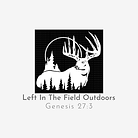The Value of Deer Hunting Seminars
- Brian R. Kightlinger

- Sep 19
- 4 min read
I remember the first time I attended a deer hunting seminar. I was eager but unsure if it would be worth my time. Would it just be a bunch of talk, or would I walk away with real skills? As it turned out, those hours spent listening, learning, and asking questions changed the way I approached hunting forever. The value of these gatherings goes far beyond the obvious. They offer a unique blend of knowledge, experience, and community that every hunter should tap into.
Why Deer Scoring and Hunting Tips Matter
Understanding how to score a deer properly is more than just a skill for bragging rights. It’s a way to appreciate the animal’s maturity and health, which can influence hunting decisions. Scoring helps hunters identify trophy-worthy bucks and make ethical choices about which animals to pursue.
But scoring is just one piece of the puzzle. Hunting tips, especially those shared by seasoned experts, can transform your success rate. From tracking patterns to choosing the right gear, these insights often come from years of trial and error. Why guess when you can learn from someone who’s already been there?
Practical Deer Scoring Techniques
Scoring a deer involves measuring antlers to determine their size and quality. The most common method is the Boone and Crockett scoring system, which considers factors like:
Length of main beams
Length of tines
Inside spread
Mass of antlers
I found that practicing these measurements on shed antlers or harvested deer helped me get comfortable with the process. It’s not just about numbers; it’s about understanding what those numbers mean in terms of the animal’s age and genetics.

Hunting Tips That Changed My Game
Over the years, I’ve picked up several hunting tips that made a real difference:
Scout Early and Often - Knowing where deer feed, bed, and travel is crucial. Use trail cameras and spend time observing.
Adjust to Weather - Deer behavior changes with weather patterns. Cold fronts often trigger movement.
Use Scent Control - Deer have a keen sense of smell. Wearing scent-free clothing and using scent eliminators can help.
Be Patient and Still - Sometimes, the best strategy is to wait quietly and let the deer come to you.
These tips might sound simple, but applying them consistently improved my hunting success dramatically.
The Power of Learning at Deer Hunting Seminars
There’s something about sitting in a room full of passionate hunters that sparks motivation. Deer hunting seminars bring together experts and novices alike, creating an environment ripe for learning. I found that the hands-on demonstrations and real-life stories made the lessons stick.
One seminar I attended featured a wildlife biologist who explained deer behavior in a way that changed my perspective. Another session focused on ethical hunting practices, reminding me why respect for the animal and the land matters.

What really stood out was the opportunity to ask questions and get immediate feedback. It’s one thing to read about hunting in a book, but quite another to hear firsthand experiences and tips. Plus, the camaraderie among attendees made the experience enjoyable and memorable.
How to Get the Most Out of Deer Hunting Seminars
If you’re considering attending a seminar, here are some tips to maximize your experience:
Come Prepared: Bring a notebook, pen, and a list of questions.
Engage Actively: Don’t hesitate to participate in discussions or demonstrations.
Network: Connect with other hunters and experts. You never know when a new contact might lead to a hunting opportunity or valuable advice.
Follow Up: After the seminar, review your notes and apply what you learned in the field.
I also recommend checking out deer hunting seminars offered by trusted organizations. They often feature top-notch instructors and cover a wide range of topics.

Beyond the Basics: Conservation and Faith in Hunting
Hunting is more than just a sport; it’s a way to connect with nature and practice stewardship. Many seminars include discussions on conservation efforts and ethical hunting, which resonated deeply with me. Understanding how hunting supports wildlife management and habitat preservation added a new layer of meaning to my outings.
For those who approach hunting with a sense of faith, these seminars often provide a space to reflect on the spiritual aspects of the experience. Respect for the animal, gratitude for the harvest, and the quiet moments in the woods all contribute to a richer, more fulfilling practice.
Taking Your Hunting Skills to the Next Level
After attending several seminars, I realized that the knowledge gained was just the beginning. The real value came from applying those lessons in the field and continuing to learn. Here are some actionable steps to elevate your hunting game:
Practice Scoring Regularly: Use shed antlers or photos to refine your skills.
Experiment with New Techniques: Try different hunting strategies based on what you learned.
Stay Updated: Wildlife patterns and regulations change. Keep learning through seminars, books, and online resources.
Mentor Others: Share your knowledge with newcomers. Teaching is a powerful way to deepen your own understanding.
The journey of becoming a better hunter is ongoing. Each season brings new challenges and opportunities to grow.
Deer hunting seminars offer more than just information - they provide a gateway to a deeper connection with the outdoors, a community of like-minded individuals, and a chance to honor the traditions and ethics of hunting. If you’re serious about improving your skills and enriching your experience, these seminars are an investment worth making.























Comments